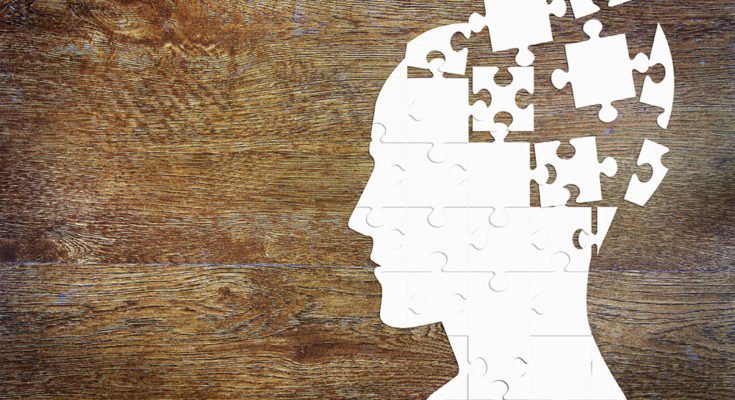
Psychological Therapy for Adults
Individuals & Couples
Psychological therapy involves exploration and discussion, to understand how past experiences, current difficulties or concerns about the future might be affecting your life.
During therapy a psychologist will listen to you and help you understand how you respond to life events and reflect upon the ways in which you see yourself and others.
Your psychologist will not tell you what to do or give you advice, but will guide and support you to make your own choices and begin the process of change.
-
EMDR stands for Eye Movement Desensitisation and Reprocessing. It is a therapy for trauma, anxieties, grief, depression, addictions, performance and many other life challenges or difficulties. EMDR helps people to resolve negative beliefs about oneself or the world into more positive beliefs by releasing blocked physical sensations and memories using eye movements that facilitate reprocessing difficult memories.
Find out more here
-
Parts work is a therapeutic approach that helps you explore and heal different aspects of yourself, especially those that may be holding onto trauma or conflicting emotions. When combined with EMDR Therapy, parts work can be particularly beneficial if you feel stuck or are experiencing internal conflicts. For instance, one part of you might want to heal, while another part may feel scared or reluctant, trying to protect you from pain.
It’s important to understand that what might feel like resistance is often a natural reaction. By approaching these protective parts with curiosity and compassion, we can create a safe space for you to navigate your feelings and experiences. Parts work encourages you to see all parts of yourself as allies in your healing journey, rather than obstacles.
I use parts work to help identify and understand these different aspects of you. This process allows us to ensure that all parts are on the same page, which is essential for effective healing. By working together, we can help you move forward in a way that feels safe and empowering.
-
Mindfulness is a practice involving focusing on breath, physical sensations, thoughts and feelings as they come in and out of awareness. It often involves developing an attitude of acceptance and non-judgment, noticing one's thoughts and feelings without attachment, and a gentle bringing of attention back to the present moment.
Mindfulness is a skill that can be cultivated through regular practice and can be used in daily life to reduce stress levels and improve well-being.
Practicing mindfulness can have significant mental and physical benefits such as reduced stress, improved concentration and focus, increased self-awareness, better emotional regulation and improved physical health including lower blood pressure and improved sleep.
Informal and formal mindfulness practice can help you to become more present and aware of their body and thoughts, reducing the amount of time spent ruminating on the past or worrying about the future. It can also help to bring acceptance and clarity to difficult emotions, helping to better manage situations instead of becoming overwhelmed.
-
Item description
-
Schema Therapy, developed by Dr. Jeffrey E. Young is an integrative therapy incorporating aspects of CBT, Gestalt therapy and Psychodynamic therapy. Schema therapy helps people to recognise and resolve unhelpful, lifelong patterns of thoughts and behaviour that originated in childhood or adolescence, and choose new more helpful ways of thinking and behaving to improve wellbeing.
Core Principles of Schema Therapy
Schema Identification: The first step in Schema Therapy is identifying the underlying schemas that are causing distress. This involves exploring past experiences and their impact on one’s emotional well-being.
Limited Reparenting: The therapist takes on a supportive and nurturing role to help clients heal the emotional wounds from their past. This is called “limited reparenting” and is crucial in addressing unmet emotional needs.
Cognitive and Behavioural Techniques: Schema Therapy utilises cognitive and behavioural techniques to challenge and change negative thought patterns, emotional responses, and maladaptive behaviours that are driven by the identified schemas.
Emotional Experiential Techniques: These techniques help clients connect with their emotions and learn to address and express their feelings in healthy ways.
Individualised Treatment Plan: Every client is unique, and we create a personalised treatment plan that aligns with your specific needs and goals. This plan will outline the areas where schemas are affecting your life and the strategies we will use to address them.
Therapeutic Relationship: Central to Schema Therapy is the therapeutic relationship. Our therapists offer support, empathy, and understanding, creating a secure environment for healing.
Emotional Experiential Techniques: We employ techniques to help you connect with and express your emotions in a safe and constructive manner. This fosters emotional resilience and helps in addressing unmet emotional needs.
Cognitive and Behavioural Interventions: Our therapists work with you to challenge and reframe negative thought patterns and behaviours driven by schemas. This process allows for significant change and growth.
Outside of Therapy and Self-Help Tools: Between sessions, clients are often assigned tools to utilise outside of therapy and are provided with self-help tools to practice and reinforce the concepts learned in therapy.
-
Item description
-
Description text goes here
-
Item description
-
Item description
-
Item description
-
Item description
-
Item description
-
Item description
-
Item description
-
Item description
Therapy is a space for discovering who we are, making sense of life experiences, and developing our ability to see a meaningful future.
Samantha specialises in trauma focused therapy and is experienced at working with a wide rage of psychological difficulties including:
Trauma, complex PTSD & dissociation
Depression & suicidal ideation
Anxiety
Grief & loss
Stress & Burnout
Existential concerns, situational crises and life decisions
Interpersonal and relational conflict and difficulties
Addiction
Couples therapy
Couples therapy can help couples who are struggling with connecting and communicating.
Samantha can help couples to
Develop shared goals and values
Improve communication
Resolve Conflict
